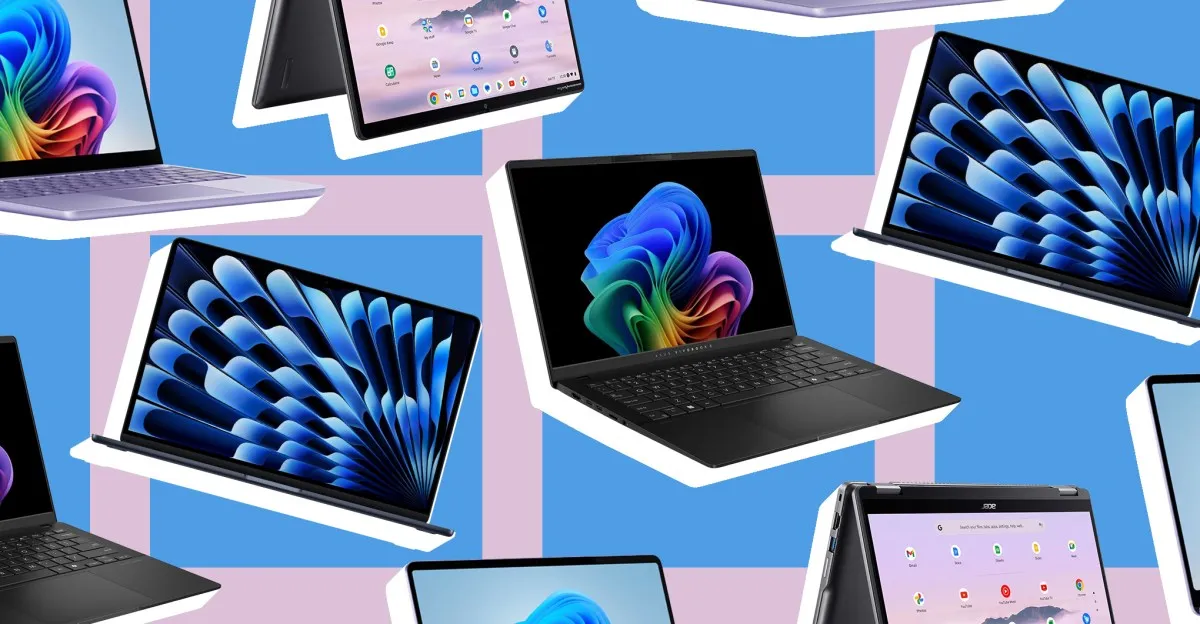
As we dive into the heart of summer, it's already time to start thinking about back-to-school planning, particularly for students in need of a new laptop. The vast array of laptops and configurations available can be daunting, especially when you're aiming to find an option that balances affordability with durability. This guide will help you navigate the best choices for students.
Your first step in selecting a laptop should be determining the operating system that best meets your needs. This decision may be influenced by personal preference or specific class requirements. If your educational institution has particular specifications or recommendations, you'll likely find those details on the school website.
A quality laptop should possess a good screen, keyboard, and trackpad, along with sufficient ports and decent speakers. For most students, unless you're purchasing a Chromebook, aim for a laptop with at least an M4 processor (for Macs) or an Intel Core Ultra 5 or 7, AMD Ryzen AI 300 series, or Qualcomm Snapdragon X processor on a Windows machine. This is particularly important if you want a laptop that will last at least four years.
It’s advisable to opt for a minimum of 16GB of RAM and 512GB of storage. If your budget allows for upgrades in RAM or storage, it’s worth investing in those areas, especially if they are not user-replaceable. Prioritize RAM if you must choose based on budget, as external storage options are readily available.
At The Verge, we conduct thorough tests on laptops, focusing on real-world use cases. This includes evaluating multitasking performance, battery longevity, and overall usability, which closely mirrors how many college students will use their devices. While we do run synthetic benchmarks to assess graphics processing capabilities, we believe that a laptop's performance in everyday scenarios is of utmost importance.
Our recommendations are based on factors like all-day battery life and decent performance at a reasonable price. We aim for laptops that can endure five or more school years without feeling sluggish or outdated.
A comfortable keyboard and high-quality trackpad are crucial, especially since students may not always use external peripherals. The keyboard should be enjoyable to type on, durable, and ideally backlit, while the trackpad should be both precise and spacious enough for comfortable use.
Screen size often comes down to personal preference, but generally, around 13 inches is the smallest you should consider, with 16 inches being the upper limit for portability. A 14-inch display often strikes a perfect balance, and most of our recommendations fall within this range. Aim for at least a 1920 x 1080 / 60Hz display that offers adequate brightness, as a brighter screen enhances usability, especially in larger models.
For younger students, durability is paramount, while older students may prioritize ease of repair and serviceability to ensure the laptop lasts as long as possible. A good student laptop should be able to handle a full day of classes without needing a recharge.
Regarding ports, ensure your laptop includes at least a couple of USB-C connections. With these considerations in mind, let's explore our top laptop picks for students.
Apple MacBook Air 13 (2025, M4) - Price: $849 (originally $999)
Pros: Exceptional battery life, great for everyday use, lightweight design.
Cons: Limited starting storage (256GB), few ports, may throttle under heavy tasks.
The MacBook Air is an excellent choice for high school and college students, balancing performance, build quality, and battery life. It handles everyday tasks with ease and is capable of light content creation.
Apple MacBook Pro 14 (2024, M4) - Price: $1,433 (originally $1,599)
Pros: Enhanced performance, more ports, improved display quality.
Cons: Higher price point, some features may be overkill for casual users.
The MacBook Pro is ideal for students pursuing creative fields, thanks to its superior performance and more extensive features compared to the Air.
Framework Laptop 13 - Price: $899
Pros: Excellent repairability, customizable ports, lightweight design.
Cons: Limited graphics performance, trackpad feels less premium.
The Framework Laptop is perfect for students who enjoy tinkering and want a device that can evolve with their needs.
Microsoft Surface Pro 12-inch - Price: $730 (originally $800)
Pros: Excellent battery life, solid performance, premium build quality.
Cons: Some app compatibility issues, lacks Windows Hello support.
This versatile device offers a great balance between portability and functionality, making it suitable for various educational tasks.
Lenovo Chromebook Plus 14 - Price: $749
Pros: Stunning OLED display, impressive battery life, solid performance.
Cons: USB ports limited to 5Gbps, some app compatibility issues.
The Lenovo Chromebook Plus 14 is a top contender for students who prefer Chrome OS, combining quality performance with an attractive display.
As the back-to-school season approaches, selecting the right laptop is crucial for student success. By focusing on essential specifications, durability, and performance, you can find a device that not only meets educational needs but also lasts for years to come. With the right choice, students can confidently tackle their studies and enjoy some leisure time as well.